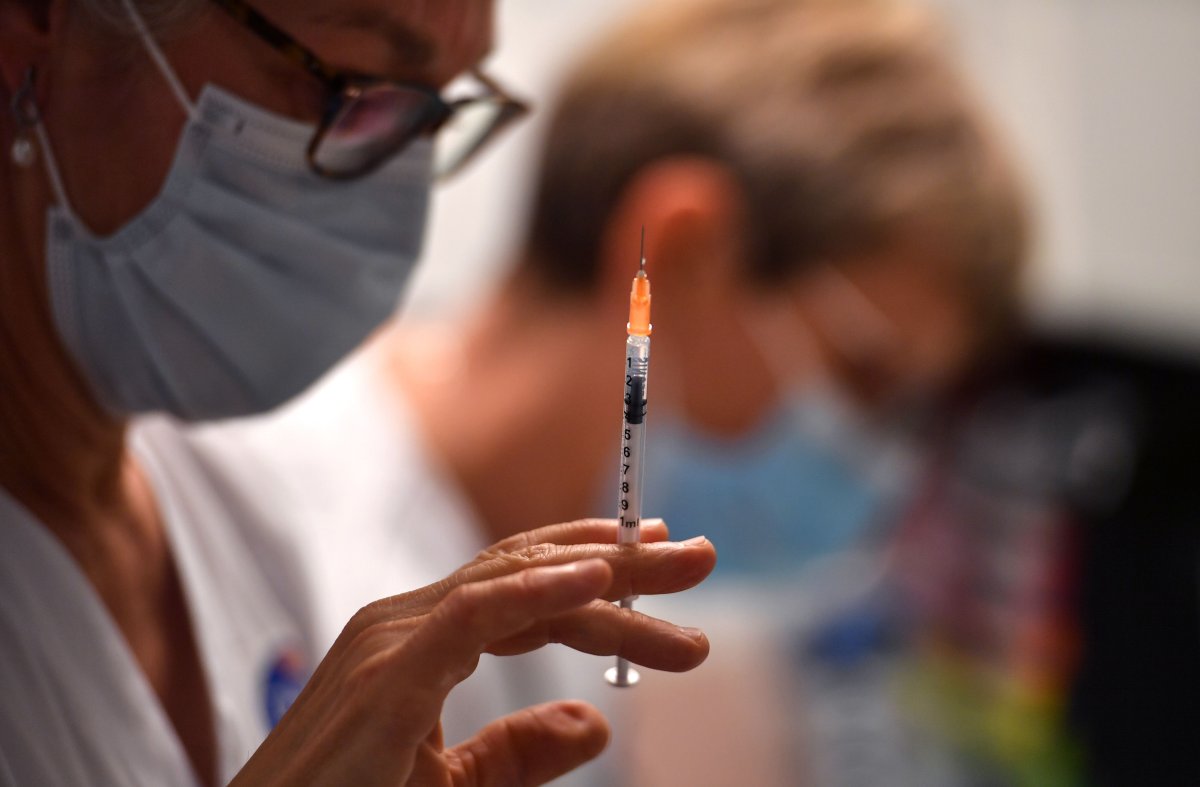The province is giving Manitobans the chance to get some insight into how long they’ll have to wait to get the COVID-19 vaccine.

An online vaccine queue calculator, which went live on the province’s website Monday, gives Manitobans a rough estimate of how many people are in line in front of them to get their shots.
“This tool … lets you into your age and a few other individual details and then shows you where you fit in our vaccine rollout,” explained Dr. Joss Reimer, medical officer of health and medical lead of the Vaccine Implementation Task Force.
The website does not offer a timeline for when, exactly, Mantiobans can expect to receive their dose, but instead shows where users fit broadly into the province’s vaccination rollout plans.

Health officials said last week that they plan to start having COVID-19 vaccines available for the general population, beginning with the elderly, in March.
The province has already vaccinated thousands of people, including health-care workers in high-risk settings and residents of personal care homes.
The next phase, expected to start in March and April, will involve a wider swath of health-care workers, people in jails, shelters and other group settings, and the general population over age 80.
After that, the minimum age will drop, Reimer said last week.
Vaccinations could be open to all adults in the province by August if new vaccines are approved and supplies are steady, she added.
On Monday, health officials announced details of vaccination plans for First Nations in Manitoba.
Under the plan, younger First Nations people will be able to access the vaccine sooner, both on and off reserve.

For example, when the second stage of Manitoba’s vaccine rollout starts offering shots to people over the age of 80, doses will be made available to First Nations people over the age of 60.
The province also said an additional 1,200 doses of Moderna vaccine has been made available to First Nations people and communities.
The shots come on top of 5,300 doses already shipped to First Nations in January and another 5,300 doses expected to arrive in mid- to late-February.
So far, 41,817 doses of vaccine have been administered across Manitoba, the province said Monday, including 32,461 first doses and 9,356 second doses.
— With files from The Canadian Press
Questions about COVID-19? Here are some things you need to know:
Symptoms can include fever, cough and difficulty breathing — very similar to a cold or flu. Some people can develop a more severe illness. People most at risk of this include older adults and people with severe chronic medical conditions like heart, lung or kidney disease. If you develop symptoms, contact public health authorities.
To prevent the virus from spreading, experts recommend frequent handwashing and coughing into your sleeve. They also recommend minimizing contact with others, staying home as much as possible and maintaining a distance of two metres from other people if you go out. In situations where you can’t keep a safe distance from others, public health officials recommend the use of a non-medical face mask or covering to prevent spreading the respiratory droplets that can carry the virus. In some provinces and municipalities across the country, masks or face coverings are now mandatory in indoor public spaces.
For full COVID-19 coverage from Global News, click here.





Comments